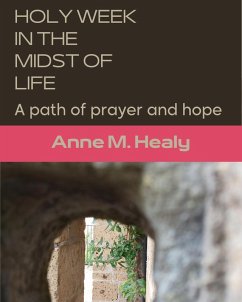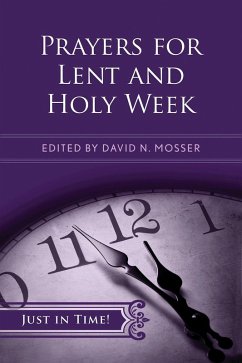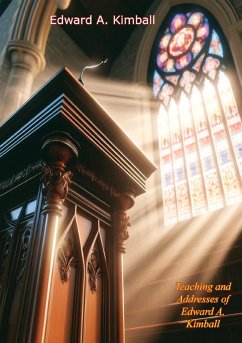
Gloria Crucis addresses delivered in Lichfield Cathedral Holy Week and Good Friday, 1907 (eBook, ePUB)

PAYBACK Punkte
0 °P sammeln!
In "Gloria Crucis: Addresses Delivered in Lichfield Cathedral Holy Week and Good Friday, 1907," J. H. Beibitz weaves a profound tapestry of theological insight and spiritual reflection during a time marked by the gravitas of Holy Week. Utilizing an eloquent and lyrical style, Beibitz's addresses transcend mere sermonizing, offering a contemplative exploration of Christ's passion that resonates with the literary context of early 20th-century Anglican thought. His oratory is rich with biblical allusions and historical context, inviting congregants and readers alike to engage deeply with the them...
In "Gloria Crucis: Addresses Delivered in Lichfield Cathedral Holy Week and Good Friday, 1907," J. H. Beibitz weaves a profound tapestry of theological insight and spiritual reflection during a time marked by the gravitas of Holy Week. Utilizing an eloquent and lyrical style, Beibitz's addresses transcend mere sermonizing, offering a contemplative exploration of Christ's passion that resonates with the literary context of early 20th-century Anglican thought. His oratory is rich with biblical allusions and historical context, inviting congregants and readers alike to engage deeply with the themes of sacrifice, redemption, and hope inherent in the Easter narrative. J. H. Beibitz was a notable figure within the Anglican tradition, whose pastoral responsibilities and theological education undoubtedly influenced his ability to articulate complex religious concepts with clarity and compassion. His experiences within the liturgical calendar, particularly the solemnity of Holy Week, equipped him with the perspective to address contemporary spiritual needs through the lens of tradition, situating his work within a growing movement of reflection on faith in the modern era. "Gloria Crucis" is recommended for theologians, clergy, and laypersons seeking an enriching meditation on the significance of the Easter story. Beibitz's addresses serve not only as powerful sermons but as timeless reflections that invite readers to revisit their understanding of faith and sacrifice, making this work a valuable addition to the libraries of those interested in deepening their spiritual lives.
Dieser Download kann aus rechtlichen Gründen nur mit Rechnungsadresse in A, B, BG, CY, CZ, D, DK, EW, E, FIN, F, GR, H, IRL, I, LT, L, LR, M, NL, PL, P, R, S, SLO, SK ausgeliefert werden.













